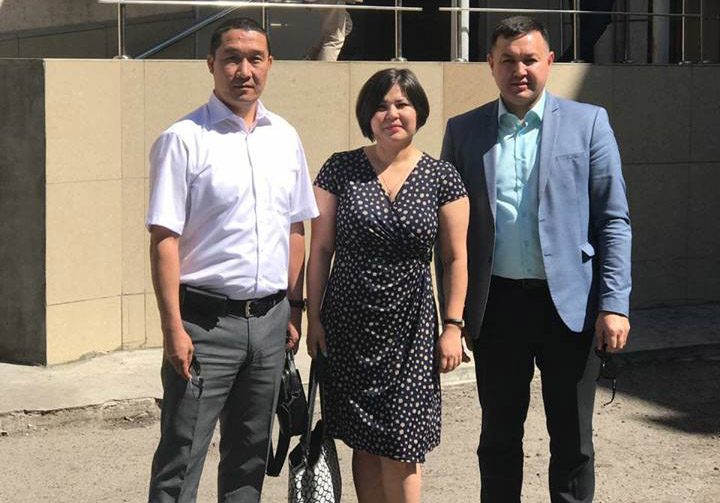
Jul 25, 2017 | News
Today the ICJ expressed concern about the real threat of criminal prosecution against lawyers Yerlan Gazimzhanov, Amanzhol Mukhamedyarov and Assel Tokayeva (photo) in Kazakhstan.
The ICJ said the action against lawyers was aimed at their discharging of their professional functions on behalf of clients, and not for any genuine criminal misconduct.
The ICJ called on the responsible authorities of Kazakhstan to discontinue the proceedings against the lawyers, which are contrary to international law and standards on the role of lawyers and the rule of law in the administration of justice.
On 22 June, in a court hearing in the criminal case, judge Ubasheva issued interim rulings against the lawyers seeking their prosecution for a number of acts, which on their face do not consist of criminal misconduct. The conduct for which prosecution is sought includes lodging a complaint alleging unethical conduct by the judge with the Commission on Judicial Ethics and Judicial Jury of the Supreme Court of the Republic; filing a motion for recusal of the judge; stating that the crime for which their clients had been accused had in fact been committed by another defendant; and participating in an international conference, rather than attending a court hearing to defend clients.
The various legal procedures used by the lawyers, including their complaint against the judge and the request for the judge’s recusal, are not prohibited by law. On the contrary, acts such as filing motions for recusal, lodging ethics complaints through officially prescribed channels, and performing standard criminal defence functions they constitute regular procedures prescribed in legislation Kazakhstan. They are also fundamental pursuant to the proper administration of justice under the rule of law.
The interim rulings of the court did not provide an analysis of the legal provisions allegedly violated by the lawyers. Certain of the lawyers were said by the court to have “demonstrated superiority over other actors in criminal proceedings.” It was also alleged that the information posted on a Facebook page about the proceedings in which one of the lawyers took part was false. However, the ruling failed to cite any specific details or conduct of the lawyers which would support these conclusions.
Regarding the charge that two of the lawyers had chosen to participate in an international conference rather than appear at the court hearing, this at most would fall under disciplinary procedures governing the conduct of members of the bar, and not the criminal law. The ICJ notes these charges should normally be made to competent disciplinary body, the Collegium of Lawyers, and not the Ministry of Justice through the request of the judge.
In addition to the criminal prosecution, judge Ubasheva asked the Ministry of Justice to take measures against the lawyers for a breach of professional ethics, causing unjustified delays in criminal trial, and contempt of court, and asked the Ministry of Interior to undertake an inquiry to determine whether the conduct of the lawyers constituted an offence punishable under Article 407 of the Criminal Code of Kazakhstan (obstruction of justice).
On 20-21 July 2017, the Criminal Chamber of Appeals examined the lawyers’ appeals against the conviction and interim appeals against the interim rulings.
The appeal proceedings before the Astana City Court were attended by Gulnora Ishankhanova, ICJ Commissioner acting as an ICJ observer.
Kazhakstan-Trial observation 3 lawyers-News-web story-2017-RUS (story in Russian, PDF)
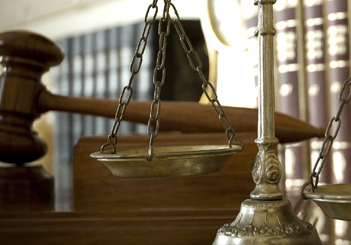
Jul 25, 2017 | News
The ICJ is concerned with the passing of Constitutional Amendment no. 1 of 2017 by the House of Assembly of Zimbabwe on 25 July 2017.
The House of Assembly voted with over two-thirds majority for the amendment of the Zimbabwean Constitution.
The amendment grants the President the right to appoint to office, the Judge President of the High Court, the Deputy Chief Justice and the Chief Justice of Zimbabwe.
Before this amendment the Judicial Services Commission (JSC) spearheaded the process of selection and appointment of judges with the President merely appointing from candidates recommended to him by the JSC.
The enactment of this Bill to law is likely to have a negative effect on the public’s perception of the judiciary. It also has the potential to affect the impartiality and the independence of the judiciary.
“The amendment to the 2013 Constitution will negatively affect public confidence in the judiciary. Not only is this a departure from a position that was in line with international standards and best practices; the amendment is likely to have a ripple effect on the judiciary,” said Arnold Tsunga, the ICJ Africa Director.
“In the short term the executive now has a carrot, which it can dangle in front of judicial officers. If a judge wants to be promoted to Judge President, Deputy Chief Justice or Chief they may have to align themselves with the thinking of the executive. Over time, given the central roles that these three office bearers play in the appointment process and thought leadership, Zimbabwe is likely to have a very executive minded bench,” he added.
To this end the ICJ calls upon the government of Zimbabwe to reconsider its decision to amend the Constitution in the manner proposed in the bill.
The procedure in section 180 of the constitution had distinguished Zimbabwe’s appointment procedures as exemplary in the region.
It is unfortunate that through this amendment the country has failed to consolidate this leadership position.
The amendment would be regressive and poses a real risk of undermining the essential role of the judiciary in securing the rule of law in Zimbabwe.
Zimbabwe-Constitutional Amendment-News-web stories-2017-ENG (full statement, in PDF)
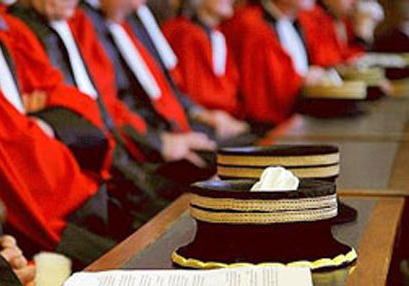
Jul 18, 2017 | Advocacy, Analysis briefs, News
The ICJ today called on the Tunisian authorities to adopt and apply procedures for the Specialized Criminal Chambers (SCC) that are clear and comply with international human rights law and standards.
The statement came following a high-level mission to Tunisia from 12 to 15 July 2017 in which the ICJ engaged with senior judicial officials, including the President of the Cassation Court, members of the High Judicial Council, SCC judges, and other stakeholders.
An ICJ analysis, Procedures of the Specialized Criminal Chambers in light of international standards, was published at the end of the mission.
“While the Specialized Criminal Chambers have the potential to contribute to addressing impunity and deliver justice for victims in Tunisia, ambiguity about the procedures to be followed by these Chambers risks undermining their effectiveness,” warned Said Benarbia, Director of the ICJ Middle East and North Africa Programme.
As detailed in the ICJ analysis, the lack of clarity comes in part from the 2013 transitional justice Law, which is seen by many stakeholders as setting up a special regime, separate from the existing criminal justice system.
There is fear that the SCC may decide not to apply the existing ordinary criminal procedures, while at the same time no detailed procedures specific to the SCC have yet been adopted.
The creation of such a gap would risk serious breaches of international standards of fairness and justice.
For example, the 2013 Law seems to give the Truth and Dignity Commission (Instance Vérité et Dignité, IVD) exclusive power to refer cases to the SCC.
However, no procedures specific to the SCC implement the rights of an accused to examine witnesses interviewed by the IVD or to access all documents and evidence collected by the IVD in order to prepare his or her defence, as required by international standards and the ordinary code of criminal procedure.
The 2013 Law also fails to clarify the role of prosecutors and investigating judges in addressing such cases, including by making their own determination in relation to charges, standard of proof, and whether these cases should be brought before the SCC.
“Clarifying the procedures to be applied by the Specialized Criminal Chambers and ensuring their full compliance with international standards, including those relating to fair trial, are a prerequisite to fully establish the truth about human rights violations, hold those responsible to account, and ensure that the proceedings are fair to the victims and accused,” added Benarbia.
The ICJ set out a list of recommendations with a view to assisting the Tunisian authorities in their efforts in achieving these objectives, including by:
- Amending article 42 of the 2013 Law and related provisions to clearly provide victims of gross human rights violations with direct access to the SCC, including when victims did not submit a file to the IVD;
- Amending provisions of the IVD Guides to ensure that the review process and the possibility to challenge IVD’s decisions will apply to decisions not to transfer a case to the SCC and that such review be based on objective criteria for considering gross human rights violations in line with international standards;
- Establishing specialized prosecution services, investigating judges, and judicial police in line with international standards and with adequate resources to work in coordination with the SCC;
- Clarifying the relationship between the SCC and other ordinary criminal chambers and civil and other courts;
- Amending the legal framework to clearly provide that cases investigated by the IVD are to be transferred to specialized prosecutors who are to carry out their functions as defined in the CCP and in line with international standards;
- Ensuring that the IVD’s investigative function complements the role of the specialized judicial institutions in charge of the investigation and prosecution; and
- Amending the CCP and ensuring that any related provision of any other procedures adopted for the SCC fully respect fair trial guarantees.
Contact
Theo Boutruche, Legal Adviser of the ICJ Middle East and North Africa Programme, tel: +33 642837354, e-mail: theo.boutruche(a)icj.org
Tunisia-Memo on SCC Procedures-Advocacy-Analysis Brief-2017-ENG (full memo in English, PDF)
Tunisia-SCC procedures memo-News-2017-ARA (full story in Arabic, PDF)
Tunisia-Memo on SCC Procedures-Advocacy-Analysis Brief-2017-ARA (full memo in Arabic, PDF)
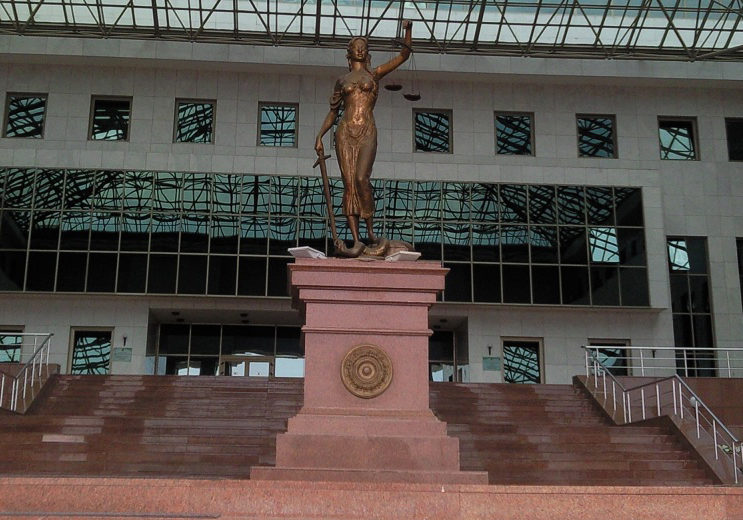
Jun 28, 2017 | News
Government moves to amend the regulatory framework of the legal profession in Kazakhstan may undermine its independence and are contrary to the principle of self-regulation of the profession, the ICJ said today.
The ICJ called on the authorities of Kazakhstan to refrain from interference in the governance of the independent legal profession and step back to allow the collegia of lawyers to continue to take responsibility for such matters.
The ICJ stressed that any proposals for reform put forward by the governing bodies of the profession should be developed in consultation with and enjoy the consent of the members of advokatura in accordance with international law and standards on the independence of lawyers.
The ICJ was responding to proposals put forward by the Justice Minister Marat Beketayev for reform of the legal profession in Kazakhstan.
In a statement to Parliament on 29 May 2017 (Report of the Minister of Justice on the issues of further development and reform of the institutes of notary and advokatura on 29 May 2017), the Minister outlined plans to:
- lower training and entrance fees to the profession “in order to simplify access to the profession”;
- broaden the powers of the Republican Collegium to regulate the disciplinary system for lawyers, in light of the Minister’s view that lawyers were avoiding disciplinary responsibility in many cases under the current system;
- require lawyers to undergo annual training followed by exams, which would be set not by the collegia themselves, but by universities or external training centres;
- require lawyers, in addition to the participation in state-funded legal aid scheme, to provide mandatory legal assistance without financial support from the Government, which the Minister described as “pro bono” service
The importance of an independent legal profession which is self-regulating is well recognized and accepted under international standards and by international authorities.
One of the means by which such independence may be guaranteed is the governance of the profession by an organization independent from the State or other national institutions.
International standards provide that it is an important function of the lawyer’s association “[t]o maintain the honour, dignity, integrity, competence, ethics, standards of conduct and discipline of the profession” (Singhvi Declaration, para.99).
In this context, comments by the Justice Minister Marat Beketayev on the need to change the disciplinary system due to lawyers avoiding disciplinary responsibility “for violations committed” is of serious concern, the ICJ said.
While it is important that lawyers who act against the interests of their clients, or otherwise violate standards of lawyers’ ethics are subject to disciplinary responsibility, it is the function of the profession itself to decide on such matters. Disciplinary proceedings should never be used to undermine lawyers’ independence.
Lowering entrance fees for qualifying lawyers may be a positive measure that can enhance access to the profession for qualifying lawyers, in circumstances where such fees are inaccessibly high.
However the initiating and design of such proposals should not be in the hands of the executive, as this may limit the independence and effectiveness of the legal profession.
Financial sustainability of an independent legal profession largely depends on its members’ fees.
The advokatura should be able to regulate and finance its regular operations, including administration and training, the ICJ added.
As noted by the former UN Special Rapporteur on the Independence of Judges and Lawyers in his report of 2009: “… the legal profession is best placed to determine admission requirements and procedures and should thus be responsible for administering examinations and granting professional certificates. This would further help in preserving its independence and self-governance, as advised in the Basic Principles.”
The ICJ is also concerned at suggestions that, as part of continuing legal education, lawyers will be subject to examinations by institutions outside the profession.
While it remains unclear what role or effect such examinations would have, the proposal raises concerns regarding the legal profession’s self-regulation and would risk undermining its independence, the ICJ said.
It should be recalled that, Kazakhstan is required take measures to remove obstacles to the independence of lawyers.
Regarding the proposals on so called ‘pro bono legal assistance’, while it is welcome when any State adopts measures to make legal aid more accessible, such measures should not place an unreasonable burden on lawyers to provide mandatory legal assistance.
The scheme proposed by the Minister for Justice whereby lawyers become responsible for providing legal services without financial compensation for their work is of concern, and appears unlikely to ensure a high quality of legal advice, the ICJ added.
It should be the role of the government to provide regular and sufficient funding for such services, ensuring that legal aid is available for indigent clients in line with international standards.
Kazakhstan-Interference legal profession-News-2017-RUS (Russian version, in PDF)
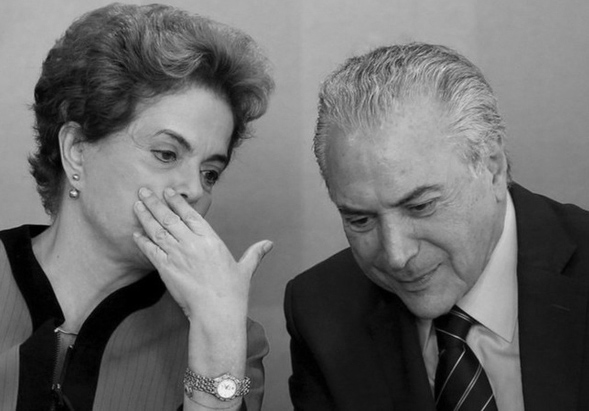
Jun 23, 2017 | News, Op-eds
An opinion editorial by Belisário dos Santos Júnior, a Brazilian lawyer who is a member of ICJ’s Executive Committee.
When assessing the Brazilian political situation, it is important to always mention the date, since the situation changes almost every minute, following the rhythm of denunciations and accusations.
Over the past three years, the main preoccupation of most people living in Latin America has been the level of violence in their countries.
In Brazil, however, although political and criminal violence is high, corruption has been the primary concern of the population, before health and with violence coming in only third position of the population’s concerns (source: Latino barômetro).
The yearly global corruption perception index of Transparency International put Brazil in the 79th position, of 176 countries rated (where 1st position is given to the country with the lowest perception of corruption and 176th given to the country with the highest perception of corruption) with a grade of 40 (0 is for the most corrupted countries and 100 for the cleanest ones).
Brazil was sharing its position with countries such as China, India and Belarus. Its grade was 3 points below the world average.
The report mentioned a clear relationship between corruption and inequalities, creating a vicious circle between corruption, unequal distribution of power and unequal distribution of wealth. How can we correct this?
Brazil is currently reacting to the problem with new laws, new police investigations and legal proceedings, which are important.
But these measures alone will not be enough to change a culture of bypassing laws into a culture of integrity and respect of honesty.
The last elected government, elected in 2014, with Dilma Rousseff as President and Michel Temer as Vice-President (photo), should have lasted until 2018 but fell in 2016 with the impeachment of Dilma Rousseff led by the President of the Federal Supreme Court and decided by the National Congress after two ballots.
Rousseff was accused of having manipulated the federal budget to hide the country’s real economic situation. Michel Temer assumed office as President following Rousseff’s impeachment.
Lula da Silva, the former President (2003-2010), ended his term in the middle of a legal storm when the Federal Supreme Court issued its judgment on the Criminal Lawsuit 470 (corruption of parliamentarians to maintain the influence of the Government in the Congress) and sentenced to prison ministers, businessmen, leaders of Lula’s Workers’ Party and other party leaders.
With the progressive use of the system of delação premiada (which is where a defendant is granted a reduced sentence or other beneficial measure for providing evidence against other persons), a measure included in the new Brazilian law to combat criminal organizations, and a series of police operations (the most famous of which is the operation Lava Jato, or ‘Car Wash’ in English), even more politicians and businessmen have been arrested and/or tried for corruption or money laundering.
More than one third of the National Congress’s members have been targeted by police operations for being implicated in controversial acts, either as agents or beneficiaries.
The current President, Michel Temer, and some of his ministers are under investigation by the Federal Police and on the verge of being denounced by the Federal Prosecutor’s Office for passive corruption.
The last two delação premiada, those of the CEOs of two Brazilian transnational corporations (Odebrecht and JBS), have overturned the political order, and so did the information that more than 2000 politicians received money from slush funds to finance their election campaigns.
Two governors and various parliamentarians are already in jail, including the former President of the Chamber of Deputies, Eduardo Cunha.
Lula da Silva himself is already facing various legal proceedings for corruption.
The winning ticket of the 2014 presidential election was recently judged in a case concerning potential abuse of economic power during their campaign.
Following a very close vote (4 against 3), the Superior Electoral Court rejected claims that illegal money was used in the Rousseff-Temer campaign.
If convicted, Michel Temer would have been forced out of the presidency.
The claim of economic power abuse was rejected only on a procedural matter: the evidence gathered – recordings, pictures, content of delação premiada – was considered inadmissible.
Aécio Neves, the opposition leader who competed against the Rousseff-Temer ticket in 2014, is in no better situation: a few weeks ago, a judicial decision deprived him of his mandate in the Federal Senate.
His sister and his cousin are already in jail and he himself is at risk of being sent to prison if the Federal Supreme Court requests this from the National Congress.
The Brazilian institutions are under investigation, but they are still functioning. Even members of the judiciary and the prosecutor’s office are being investigated.
There is still a decent level of trust in the work the current economic team is doing.
The National Congress gave its approval for the Constitutional Amendment on the Expenditure Ceiling, which will impose a series of conditions to public spending over the next few years. This somehow increases the credibility of the country’s economy.
On the agenda of the Congress, but affected by the series of denunciations for corruption that have hit parliamentarians, are the social security and labour reform bills considered essential for the future of the country by all the economic experts.
But it must also be noted that in the name of the fight against corruption, the Police and Federal Prosecutor’s Office have committed some abuses, to the point that a judge of the Supreme Court said Brazil was on the way to turning into a police state.
Corruption has reached such a level of intensity in the Brazilian political world that people are left in a severe and dangerous state of disappointment and despair. Already the current President is reaching a mere 1% approval rating…
Only elections would improve such a situation. The next presidential election is scheduled in 2018. But who will be eligible to run for it? The law prevents anyone who has a police record from applying.
However, society is reacting, taking various initiatives that value integrity measures, compliance actions, measures linked to education, in addition to the holding of intense debates demanding respect for democracy and human rights and calling for political reform.
Some people want direct elections now but this is contrary to the Constitution. However, 2018 is a long way to go and in the meantime there will be many public demonstrations.
But one thing is sure: Brazil is greater than the crisis it is facing now. This country has survived worse situations, including two long periods of dictatorship. Brazil will battle against this new agony. Respect for democracy, the Constitution and rule of law will prevail at the end.
A versão portuguesa pode ser descarregada abaixo:
Brazil-Corruption crisis-News-Op-ed-2017-POR (em PDF)









